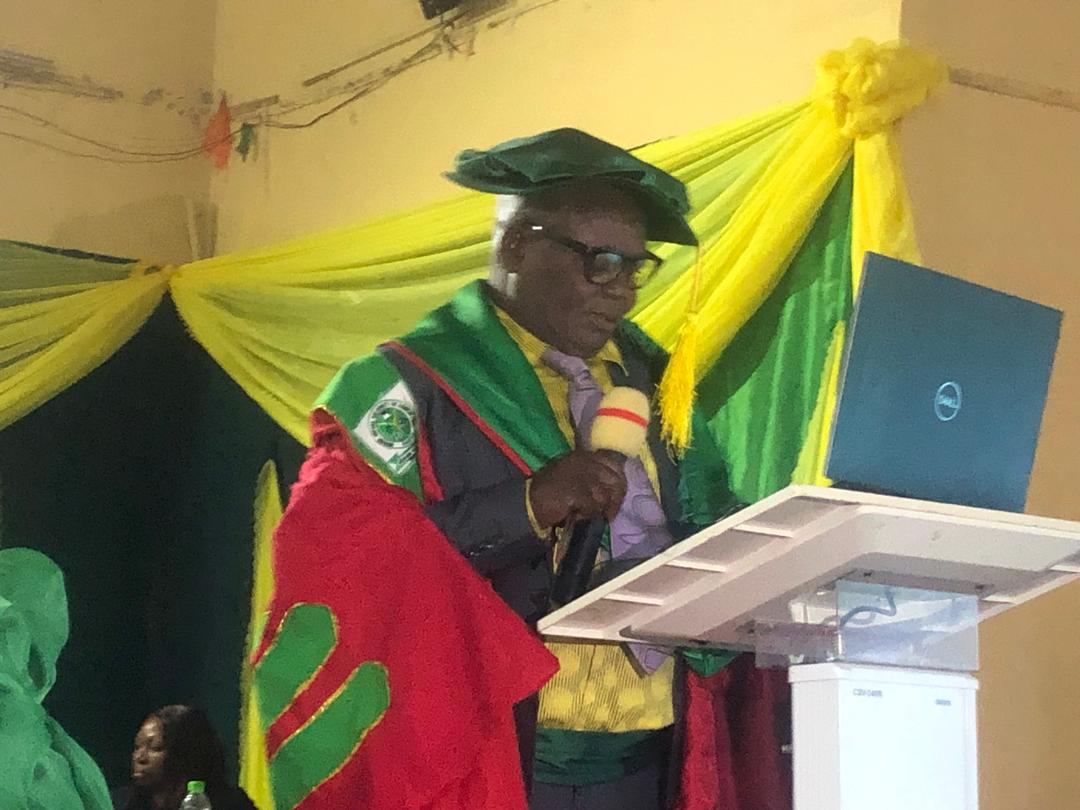At the 60th Inaugural Lecture of the Michael Okpara University of Agriculture, Umudike (MOUAU), Professor Sebastian Ofumbia Uremadu, a distinguished Professor of Banking and Finance, highlighted the critical role of capital formation in revitalizing Nigeria’s economy.
In his lecture titled “Navigating the Trade-Off: Profitability Vs Liquidity in Nigeria’s Investment Environment”, Prof Uremadu underscored the importance of Foreign Direct Investment (FDI) in driving economic growth.

The Financial expert emphasized that FDI serves as a major catalyst for capital formation and could significantly bolster Nigeria’s economic development. Amid ongoing economic challenges, he urged policymakers to foster a favorable investment climate to attract both foreign and domestic investors.
He called on the government to implement policies that encourage domestic investment while reducing over-reliance on foreign capital. Enhancing infrastructure and strengthening institutional frameworks, he said, are essential steps toward supporting sustained capital formation.
Addressing government expenditure, Prof Uremadu, noted that increased spending in key sectors such as health, education, and infrastructure could positively impact economic growth. He advocated for strategic policies that ensure efficient allocation of public resources.

On the issue of inflation, the professor explained that Nigeria’s rising inflation rate is largely influenced by macroeconomic variables including fiscal deficits, uncontrolled growth in money supply, interest rates, and exchange rate volatility. He also pointed to other contributors such as insecurity, middlemen activities, and imported inflation. For instance, “insecurity in Northern Nigeria has disrupted the supply of dry fish like Mangala, due to Boko Haram and banditry preventing fish farmers from accessing the sea, thus reducing availability and raising prices”.
He also noted that the removal of fuel subsidies has significantly increased transportation costs, thereby, raising the prices of goods across the country.

According to Prof Uremadu, inflation in Nigeria is a multifaceted issue requiring more than traditional monetary policy tools for effective management.
He, however, recommended a multi-pronged approach that included; implementing strict fiscal policies to reduce budget deficits, aligning money supply growth with economic output to prevent excess liquidity, adopting balanced interest rate policies that control inflation without hampering growth, as well as, stabilizing exchange rates to mitigate the effects of imported inflation.

Additionally, he advocated for a more investment-friendly environment for commercial banks and other sectors, stating that once key economic drivers are in place, Nigeria’s financial ecosystem would stabilize, ensuring long-term economic sustainability.

In his opening remarks, MOUAU Vice Chancellor, Prof. Maduebibisi Ofo Iwe, praised Prof. Uremadu for his impactful contributions to Banking and Finance. He described the lecture as timely, particularly as the College of Management Sciences is being re-inaugurated, noting that the insights shared could help rejuvenate Nigeria’s ailing investment climate.

























